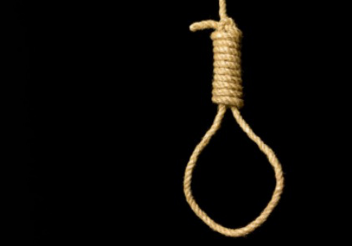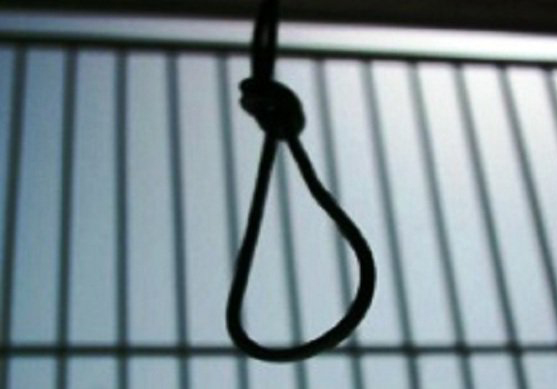
Jul 25, 2022 | News
The International Commission of Jurists (ICJ) joins in the international condemnation of the executions of four pro-democracy activists in Myanmar following grossly unfair trials contrary to international human rights law.

Oct 5, 2018 | News
The proposal to implement caning on those found guilty of corruption would directly violate the absolute prohibition of torture and other cruel, inhuman or degrading punishment under international law, said the ICJ today.
The Malaysian Anti-Corruption Commission (MACC) called on the Government of Malaysia last week to consider caning as a punishment for those convicted of corruption to underline the efforts of eliminating corruption in the country.
Malaysia currently implements caning in a wide range of offences, including the Immigration Act 1959/63, the Penal Code (rape, criminal breach of trust), and the Dangerous Drugs Act 1952.
At present, under the Malaysian Anti-Corruption Commission (MACC) Act 2009, the punishment for those found guilty of bribery is payment of a fine and imprisonment for up to twenty (20) years.
“Malaysia must immediately and completely abolish caning as a form of punishment. The proposals to implement caning for those found guilty of corruption, bribery, or any other offence is a significant setback for the country.
If this proposal is implemented, it will violate Malaysia’s obligations to prevent, prohibit and prosecute all forms of torture and other cruel, inhuman or degrading treatment or punishment, as.” said Emerlynne Gil, ICJ’s Senior International Legal Adviser.
After Malaysia’s historic election results on 9 May 2018 and the corruption charges levied against its former Prime Minister, Najib Razak, it would be superficial for Malaysia to view the implementation of severe punishments for the crime of corruption as the panacea to the deeply-rooted culture of corruption among those that have held public office and state authorities.
The ICJ also emphasizes that all forms of torture and other cruel, inhuman or degrading treatment are absolutely prohibited by customary international law, as well as international treaties binding on Malaysia, including the Convention on the Rights of the Child (CRC), the Convention on the Elimination of All Forms of Discrimination Against Women and the Convention on the Rights of Persons with Disabilities (CRPD).
The UN Special Rapporteur on Torture has stated that “any form of corporal punishment is contrary to the prohibition of torture and other cruel, inhuman or degrading treatment or punishment.” It cannot be considered a “lawful sanction” under international law.
The ICJ urges the Government of Malaysia to abandon any proposal to implement caning as a form of punishment for any crime. The ICJ also calls on the Government of Malaysia to immediately abolish the practice of caning as it constitutes a form of cruel, inhuman or degrading punishment prohibited under international human rights law and standards.
Contact:
Emerlynne Gil, Senior International Legal Advisor, International Commission of Jurists,
mobile: +66 840923575, email: emerlynne.gil@icj.org
Background:
At a press conference on 1 October 2018, Malaysia’s Anti-Corruption Commission’s Chief Commissioner Datuk Seri Mohamad Shukri Abdul had proposed that the Malaysian government consider implementing caning for bribery offenders.
Section 288 of the Criminal Procedure Code states the mode of executing the sentence of ‘whipping’, in Section 288(3) it defines the ‘Rattan used for whipping shall not be more than half of an inch in diameter’ (the word caning is not mentioned), while Section 289 of the Criminal Procedure Code states that the sentence of whipping is forbidden in the case of ‘females’, males sentenced to death and males whom the Court considers to be more than fifty years of age, except males sentenced to whipping under Section 376, 377, 377CA or 377E of the Penal Code.

Mar 7, 2017 | News
The ICJ today condemned the move of the Philippines’ House of Representatives to reintroduce the death penalty for drug-related crimes.
The ICJ has called on the country’s Senate to block this serious threat to human rights.
Earlier today, the House of Representatives approved House Bill 4727 on third and final reading by 216 votes. 54 voted “no”, and one abstained. The bill as amended reinstates the death penalty for drug-related crimes, more than 10 years after the Philippines had legally abandoned executions.
The approved bill will be transmitted to the Senate, where it will go through the same procedure of three readings.
“The passage of the death penalty bill in the Philippine House of Representatives represents a turning point in the country, but one that is for the worse. It puts the Philippines in direct conflict with its international legal obligations,” said Emerlynne Gil, ICJ’s Senior International Legal Adviser for Southeast Asia.
“Now it’s up to the Philippine Senate to stop this terrible and unconscionable move and preserve the Philippines’ status as a regional leader against the death penalty,” Gil added.
Since 2007, the Philippines has been a Party to the Second Optional Protocol to the International Covenant on Civil and Political Rights (ICCPR), requiring all parties to abolish the death penalty in law and practice. Under the ICCPR and the Second Protocol, States are prohibited from bringing back the death penalty once it has been abolished in domestic laws.
“Passing this law will send a negative message to the international community that the Philippines is incapable of observing in good faith the international obligations it has expressly bound itself to,” Gil said.
Ever since it abolished the death penalty in 2006, the Philippines has been viewed by many observers as a regional and global leader on the drive to abolish capital punishment. Not only was it the very first Southeast Asian country to ratify the Second Optional Protocol to the ICCPR, it also played an instrumental role in advocating for the abolition of the death penalty worldwide.
Since 2007, the Philippines has consistently co-sponsored multiple UN General Assembly resolutions calling for a moratorium on the use of the death penalty with a view to its total abolition. These resolutions have been adopted with large majorities.
“The Duterte administration had already engaged in hundreds, if not thousands, of extrajudicial killings justified by unsubstantiated claims that such wholesale crimes will somehow respond to the country’s drug problem. The resumption of the death penalty compounds the horrors of this bloody campaign without any evidence whatsoever that this odious practice will in any way improve the alleged drug problem in the country,” Gil said.
Rather than the death penalty, studies have demonstrated that heightened enforcement efforts which increase the chances of actually being caught and punished are more effective in deterring criminal conduct.
The ICJ therefore calls on the Senate of the Philippines to reject in full the bill seeking to re-impose the death penalty in the country in accordance with the Philippines’ international obligations.
Background
The bill approved by the House of Representatives (Lower House) will be transmitted to the Senate (Upper House), where it will go through the same procedure of three readings.
If the bill is approved upon the third reading at the Senate without amendments, it will be presented to the President. The bill would become a law if and when it is signed by the President.
If, however, there are amendments on the bill at the Senate and the House of Representatives do not agree with these amendments, the differences would be settled by a Conference Committee of both Houses.
The recommendations of the Conference Committee would have to be approved by both Houses.
Contact
Ms. Emerlynne Gil, ICJ’s Senior International Legal Adviser, tel. no. +66 840 923 575, email: emerlynne.gil(a)icj.org

Mar 3, 2017 | News
The ICJ today urged the Philippine Congress to bring a halt to the Government’s attempt to bring back capital punishment.
The Philippine Congress’s attempt to restore this heinous practice is in blatant breach of its international legal obligations.
The ICJ condemned the approval on second reading of a bill to restore the death penalty by the Philippines’ House of Representatives on 1 March 2017 and called on legislators to vigorously oppose it and prevent it from being passed on final reading.
If adopted, the legislation will place the Philippines at odds with its legal obligation under international treaties to which it is party, the International Covenant on Civil and Political Rights (ICCPR) and its second Optional Protocol aiming at the abolition of the death penalty.
The ICJ also expressed concern at the manner in which the bill was effectively railroaded through the Philippine House of Representatives this week when it passed on second reading House Bill 4727, which seeks to reintroduce the death penalty for drug-related crimes.
House Bill 4727 will be put to a final vote on third reading next week. Nominal voting will be done on the third reading of the bill, which means that one by one, legislators would be called to explain their vote.
To marshal enough support for the bill, pro-death penalty legislators struck off all other crimes that were proposed in the original bill to be punishable by death, such as plunder, treason, and rape.
As it stands now, House Bill 4727 imposes capital punishment only on commission of drug-related crimes. Proponents of the bill claim that this is to support the President’s “war on drugs”.
The controversial measure was approved only eight session days after it reached the plenary for debates on 1 February 2017.
“It is obvious that proponents of State killing as means of “justice” were intent on rushing the passage of the death penalty bill by thwarting any substantial discussion thereon and by pressuring into silence those who oppose it,” said Emerlynne Gil, ICJ’s Senior International Legal Adviser for Southeast Asia.
A similar bill proposing to bring back the death penalty has been filed at the Philippine Senate. The Senate Committee on Justice and Human Rights conducted the first hearing on the bill last 7 February 2017. The Committee Chair, Senator Richard Gordon, indefinitely suspended the hearing until the Department of Justice is able to submit its opinion on the Philippines’ obligations under the ICCPR and its Second Optional Protocol.
“Until recently, the Philippines had set an example of regional and global best practice on the abolition of the death penalty. Reintroducing the death penalty will be an enormous move backward for the country,” Gil emphasized.
The move by the Philippines goes against a global trend towards abolition of the death penalty.
In December, the United Nations General Assembly voted by a large majority, for the sixth time, to adopt a resolution which called on states that have abolished the death penalty not to reintroduce it. It also called on all retentionist States to impose a moratorium on the death penalty with a view to abolition.
The ICJ opposes the death penalty in all cases and considers its use to be a violation of the right to life and freedom from cruel, inhuman, or degrading punishment.
Background
The leadership has sought to bypass normal procedures in hastily pushing through the bill seeking to re-impose the death penalty at various stages of the Philippine Congress.
9 November 2016: the Sub-Committee on Judicial Reforms began hearings on the bill seeking to re-impose the death penalty.
29 November 2016: the Sub-Committee approved the bill after it rushed through the proceedings, ignoring important questions from other lawmakers questioning the need for such legislation. The bill was thereafter referred to the Committee on Justice for further deliberation.
7 December 2016: the Committee on Justice approved the bill and moved that it be debated in plenary.
1 February 2017: the plenary debate on House Bill 4727 began.
8 February 2017: the Speaker of the House of Representatives, in a closed-door caucus among members of the supermajority, threatened that those who oppose the bill will be stripped of their leadership posts in Congress, i.e. committee chairmanships and Deputy Speakerships.
28 February 2017: amidst vehement objections from the opposition, the debate in plenary was ended. This was done despite the fact that only nine out of at least 50 members of Congress who had registered to interpellate the sponsors of the bill had been given the opportunity to do so.
1 March 2017: during the period of individual amendments, the sponsors of the bill invoked omnibus rejection to all proposed amendments, rejecting every proposal that was deemed inconsistent with the House leadership’s agenda of immediately passing the bill. Later that day, the period of individual amendments was ended, despite calls from legislators who wished to make further changes to the bill.
Contact
Ms. Emerlynne Gil, ICJ’s Senior International Legal Adviser, tel. no. +66 840923575, email: emerlynne.gil(a)icj.org







